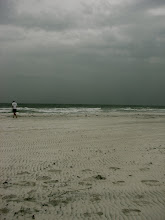The reason why this was important was because my social groups entertainment and world revolved around driving. And I mean, literally, just driving. We'd pile into someone's car, start up the main streets of Urbandale--down Aurora past the high school, down 73rd to Douglas and downtown, maybe down around past the mall and then around and around and around . . . We joked and listened to the radio (not our 8-tracks or cassettes and there were no CDs or ipods and such--I had an 8-track in my van that I bought after high school) and looked to see who was out and about just like us. This is what we did on Fridays and Saturdays and other days and summer days, at least for a couple of years. Sometimes we'd go somewhere specific--a movie or bowling or whatever. Sometimes we'd venture into Des Moines and go to The Loop, which was a circle downtown among the big buildings where all sorts of strange people went around and around and around to no purpose other than to go round'n'round and see others do the same. Ah. Sometimes we'd hit the Interstate--I-80 or I-35--which was an even bigger circle and we'd see what we saw.
Talk about your wasted youth.
But the person who drove the most was Rick Kading. He was a good guy, from my class and my lab partner in biology and botany and friend. I did most of the work (all of it, really) as lab partner, but I liked Rick very much and he was good to me. He'd come pick me up at my house in his car and we'd gather others for a night of driving. he had a Chevy Nova--his car--that looked cool and whenever the song Don't Rock the Boat came on he'd turn his wheel back and forth and make the Nova rock like a boat. Yes--very inventive . . . Anyway, we had fun and I used to sit out on my front porch each evening waiting for Rick to come driving down 65th Street and stop so that I could hop in. He didn't come every time and then, if he didn't show up, I'd feel shunned and sad. I don't know why I didn't just call him (he lived only a few blocks away from me in the older part of Urbandale), but that just wasn't done. (We did NOT have cell phones and that constant need to be in touch, anyway.) So, out I'd sit and hope Rick Kading would come driving down my street in his Chevy Nova.
There were adventures to be had--girls to meet, near fights with older classmen, car chases with strangers on the Interstate. But ultimately, besides just enjoying a newfound motorized freedom, we were just killing time. We didn't know what to do with ourselves in a place like the suburbs of Iowa's biggest city other then to circle around within it. I mean, we socialized and had our routines and it was not a long period, this driving around, but still: we were going nowhere while pretending that we were going somewhere.
But that's how it is in those years. Eventually we did grow up and go--to college, to other states and such. Rick never went to college. He married and had a kid and stayed in Des Moines--in Urbandale. I lost touch and we weren't close friends, I'd hear of him here and there through the high school friends I did stay in touch with. I did come back to Iowa one summer and Rick called and he gave me a day's work doing concrete, which I appreciated. But, just like not calling to see if he was coming by in his car, I never asked him for more work. Rick became a very successful person, as I understand it. But, like I said, he was a good guy overall. And I got my hand on cars and vans and such and I drove all over the place in the following years. The following decade or two.
Maybe Rick got it out of his system while in high school. But I made bigger and bigger circles, still thinking I was getting somewhere.
Do I wish I had stayed in Des Moines? No way.
But I'm still circling.
